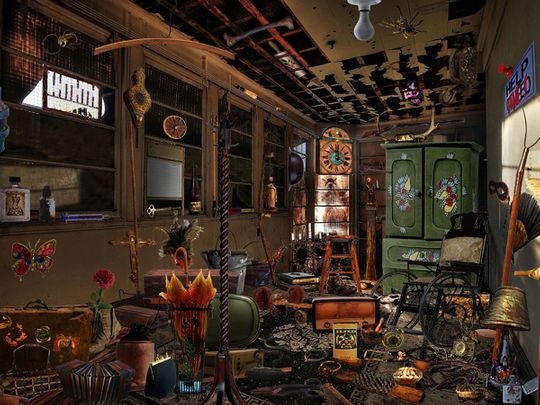
I am a hoarder. It began with little knick-knacks and has gotten worse over time. Of late, I’ve not been able to throw out even clothes that are old and torn. Everywhere I go is a mess and I can barely find anything. And while I want to be organised, I am unable to junk anything. What can I do to get clutter-free? A reader who wishes to remain anonymous asks.
Answered by Dr Fabian Saarloos,Clinical Psychologist , German Neuroscience Center
Hoarding, according to the Diagnostic and Statistical Manual of Mental Disorders (DSM-5), is defined by the persistent difficulty [in] discarding or parting with possessions, regardless of their value, due to a perceived need to save the items and to [perceived] distress [in] discarding them. It is not clear what causes hoarding disorder, but genetics, brain functioning and stressful life events are implied in the development of the disorder. The difficulty results in the accumulation of possessions that clutter and congest living areas and substantially compromises their intended use.
What can go wrong?
Hoarding can result in excessive cluttering, disorganised piles and stacks of items which make living space unusable (e.g. no room for walking/sitting), and the buildup of organic products can also lead to unsanitary and/or unsafe conditions.
In addition, important and usable items may get lost in the clutter, leading to other problems.
Frequently, hoarders get into conflict with people who try to reduce or remove the clutter as the anxiety about parting with it may lead to fight-or-flight reactions. This frequently results in isolation, which then increases the hoarding behavior in order to reduce the anxiety/sadness.
Despite frequently being related to psychological conditions such as depressive disorder, obsessive-compulsive disorder, or post-traumatic stress disorder, hoarders have a tendency to indecisiveness, perfectionism, avoidance, procrastination, and problems with planning and organising.
Hoarding versus collecting
Hoarding is different from collecting items as collectors tend to pay more attention to their possessions and their organisation, and do not experience the distress and impairment that the hoarder does, but rather joy.
Coping mechanisms
Because hoarding has only recently been recognised as a mental disorder, little is understood about what causes it and how to prevent it. However, psychological treatment of the underlying disorder, e.g. depression or post-traumatic stress, and focusing on the anxiety about parting from the hoarded items seems to be effective in reducing and/or coping with hoarding disorder.
In therapy, clients learn what factors or life situations have taught them that the accumulation of items reduced anxiety.
They also learn about the negative impact of their disorder, and how the resultant anxiety maintains the hoarding behavior, making them aware of the vicious cycle they are in.
Depending on the conceptualisation of the problem and the degree of suffering, psychotropic medication may be considered.
As with most psychological disorders, Cognitive Behaviour Therapy (CBT) is the treatment of choice. In CBT, clients learn how their thinking (e.g. throwing away items) affect their feelings (e.g. anxiety), and how that interaction affects their behavior in certain situations (e.g. avoidance). In CBT, clients are tought different ways of thinking about their problem behavior and situations, which then results in more functional emotions and better feelings, which in turn lead to a change in behavior and improvement of situations.
Other psychotherapeutic models such psychodynamic and psychoanalytic therapy, focus on the development of the hoarding behavior, like, how early factors such as upbringing and parents may have created the hoarding disorder (for instance, accumulating items to compensate the void of having felt unloved by mother).
More modern psychotherapeutic modes such as Eye Movement Desensitization Reprocessing (EMDR), focus on desensitising the anxiety related to the hoarding experience, by improving the brain’s processing of (conscious/unconscious) memory processes implied in the anxiety and behavior.
If you have questions that you would like answered by a mental health professional in the UAE, please write in to readers@gulfnews.com. Also, please let us know if you'd rather stay anonymous.
Disclaimer: This blog is a conversation and is not an alternative for treatment. The recommendations and suggestions offered by our panel of doctors are their own and Gulf News will not take any responsibility for the advice they provide.









